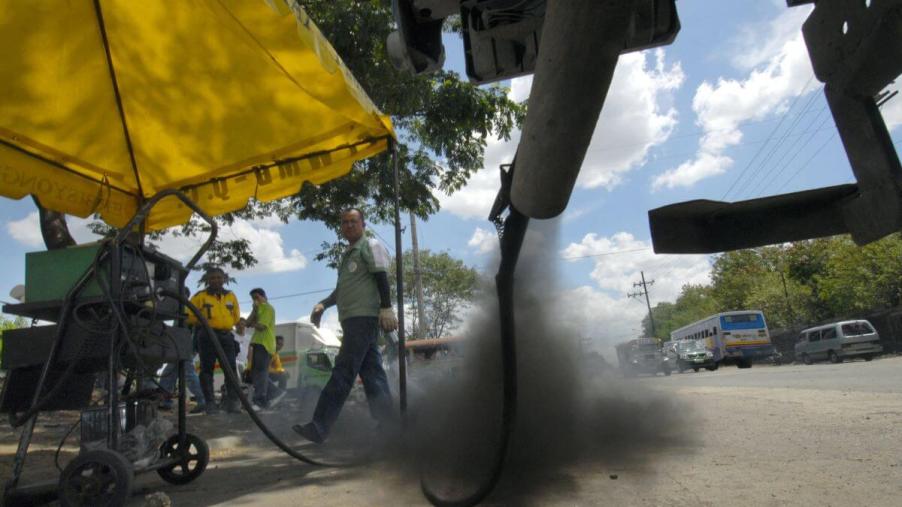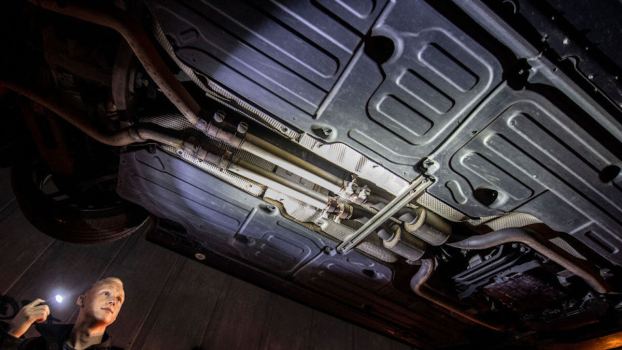
What Does Black Smoke From a Car’s Exhaust System Mean?
We’ve all been there – driving down the road, minding our own business, when suddenly, you notice that your car’s exhaust is puffing out ominous black smoke. It’s not a sight any driver wants to see, but don’t worry! In the world of automotive maintenance mysteries, black smoke from your exhaust system is like a smoke signal trying to tell you something. We’ll decipher the code of black smoke and explore its causes and solutions as we delve into the colorful world of exhaust smoke.
Understanding your car’s exhaust system
Before we jump into the world of black smoke, let’s start by understanding what an exhaust system is and why it’s important. An exhaust system is like the unsung hero of your vehicle, working diligently behind the scenes. According to Minitune, it consists of several key parts, each vital in ensuring your car runs smoothly and cleanly.
Parts of an exhaust system
- Exhaust Manifold: This part collects exhaust gasses from the engine’s cylinders.
- Catalytic Converter: The catalytic converter’s primary job is to reduce harmful emissions by converting toxic gasses into less harmful ones.
- Muffler: The muffler reduces noise by dampening the sound of the exhaust gasses.
- Tailpipe: The tailpipe releases the exhaust gasses into the atmosphere.
Purpose of an Exhaust System
An exhaust system serves multiple purposes:
- Emissions Control: It helps reduce harmful pollutants emitted by the vehicle.
- Noise Reduction: It minimizes the noise generated by the engine’s combustion process.
- Improved Engine Performance: Proper exhaust system maintenance can improve engine performance.
Now that we’ve covered the basics, let’s dive into the main topic: black smoke from your car’s exhaust system.
Black smoke causes and solutions
According to RepairSmith, black smoke results from various issues, with one of the primary culprits being an excessively rich air-fuel mixture. This condition can happen from malfunctioning fuel injectors or carburetors. Additionally, if your engine is burning oil, it can generate black smoke, commonly caused by the wear and tear of piston rings or valve seals. Another factor to consider is a clogged air filter, which, when filled with dirt and debris, can obstruct the airflow, leading to incomplete combustion and black smoke from your vehicle’s exhaust system.
Solutions to black smoke
- Check and Replace Air Filter: Start with the basics – check your air filter and replace it if necessary. A clean air filter ensures proper air intake, improving combustion.
- Inspect Fuel System: If your fuel system is the culprit, have it inspected by a professional mechanic. They can identify and rectify issues with fuel injectors, carburetors, or the fuel pressure regulator.
- Engine Oil Maintenance: Regularly check your engine’s oil levels and quality. If you notice excessive oil consumption, have your engine checked for leaks or worn-out components.
- Catalytic Converter: If the catalytic converter is damaged, it can lead to black smoke. A damaged converter should be replaced promptly.
- Professional Diagnosis: If you can’t pinpoint the issue, it’s best to consult a professional mechanic. They can perform diagnostic tests to identify the exact cause of the black smoke.
Exploring other exhaust smoke colors
Black smoke isn’t the only hue your car’s exhaust system can produce. According to AutoExpress, here’s a quick rundown of what other colors might mean:
Blue smoke
Blue smoke typically indicates that your engine is burning oil. This can be caused by worn piston rings or valve seals. Addressing this issue promptly is essential to prevent further damage to your engine.
White smoke
White smoke usually suggests coolant or water being burned during combustion. It can be a sign of a blown head gasket, a cracked cylinder head, or a coolant leak. Immediate attention is necessary to avoid engine overheating.
Gray smoke
Gray smoke might indicate a problem with the transmission fluid, such as a worn-out torque converter or a failing vacuum modulator. It’s essential to diagnose and resolve these issues to prevent transmission damage.
Decoding the language of exhaust smoke
Your car’s exhaust system is like a communication channel, and the smoke’s color can convey crucial information about its health. Black smoke often signals an issue with the fuel, air, or oil systems, but don’t panic! With proper diagnosis and maintenance, you can keep your vehicle running smoothly and enjoy a smoke-free driving experience.





